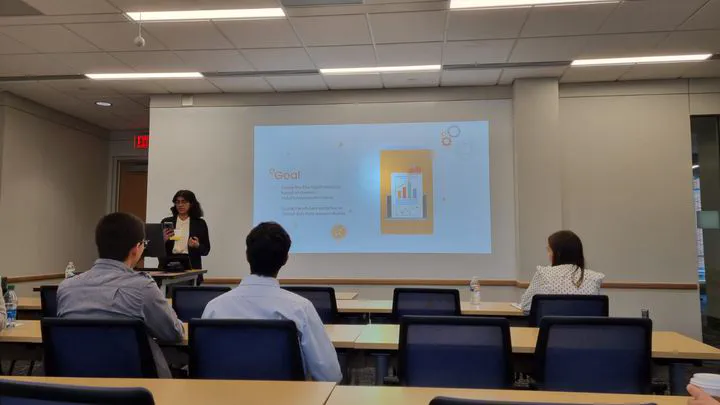JAMIA ChatGPT Meta-Analysis Interface
Feb 24, 2024· ·
0 min read
·
0 min read
Anubha Mahajan

Abstract
Biomedical literature extends far beyond mere scientific documentation. It serves as a powerful tool for research exploration and optimizing clinical practice. This research is propelled by two core imperatives: advancing therapeutic efficacy in numerous cancer types through drug repurposing and fortifying pharmacovigilance practices to ensure patient safety. This web interface leverages the capabilities of natural language processing to enhance and automate research inquiry on biomedical literature, specifically focusing on the application of AI-assisted meta-analysis in the realm of clinical literature. Quantitative meta-analysis of clinical studies forms the gold standard for establishing clinical guidelines and best practices by calculating an aggregate effect size from a collection of smaller cohorts. Meta-analysis begins with a specific research question and then extracts study-specific data elements to form a large, synthetic statistical cohort. Currently, the process of selecting research articles and extracting relevant data is done manually, taking a year on average for each clinical meta-analysis. Additionally, existing Large Language Models (LLMs) are prone to “hallucinations,” generating inaccurate and misleading information that challenges the reliability of data analysis. Our solution offers a Human-in-the-Loop (HITL) system where AI assumes the bulk of labor-intensive tasks, effectively addressing both concerns. We empower clinicians throughout their research journey, from formulating research queries to screening citations and finally presenting information via an intuitive interface. This interface dynamically locates relevant papers, extracts key information, and allows for the customization of filters and columns, offering clinicians the flexibility to tailor their research. This approach not only streamlines the selection process for research articles but also mitigates the inaccuracies prevalent in LLMs, ensuring the reliability of synthesized information. This significantly reduces the requirement for expensive skilled labor especially in preliminary research, leading to substantial time and resource savings.
Date
Feb 24, 2024 9:15 AM
Event
Location
Oxford College, Emory University
801 Wesley St, Oxford, GA 30054